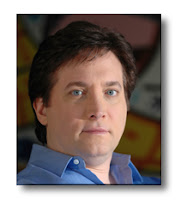 If you're worried about a recent study that says Prozac isn't effective, mental health professionals have a message for you.
If you're worried about a recent study that says Prozac isn't effective, mental health professionals have a message for you.
Don't worry about it!
A story from the The Guardian, a British newspaper, claims a scientific study has proven that the bestselling antidepressant "does not work," nor do similar drugs in the same class.
The study, developed by Hull University in the United Kingdom and other institutions, examined all available data on the drugs - including results from clinical trials that compared the effect on patients taking the drugs with those given a placebo or sugar pill, according to The Guardian.
When all the data was pulled together, it appeared that patients had improved - but those on placebo improved just as much as those on the drugs, according to the newspaper.
But Benjamin Druss, the Rosalynn Carter endowed chair for mental health and an associate professor at Emory University, said the information isn't very new. But it doesn't mean that it's right.
"There have been several other recent meta-analyses that have found that [anti-depressants] aren't as effective as we had originally thought," he said.
The study, however, seems to indicate that - at the very least - seriously ill patients consider the drugs to be effective.
"It's interesting to see where and how this story has been covered; more in the U.K. than in the U.S.," he said. "The U.K. articles appear to be more likely to come up with the '[anti-depressants] don't work' conclusion, whereas the U.S. reports talk more about the fact that these meds primarily appear to be useful in more serious cases of depression."
Recent events seem to prove that: law enforcement officials noted that Steven Kazmierczak went on a murderous shooting spree at Northern Illinois University after he recently stopped taking Prozac.
Psychiatrists say suspending a patient's use of antidepressants is rarely linked to violence toward others, according to The Chicago Tribune.
But they also said it's not impossible.




 Fort Drum
Fort Drum






















